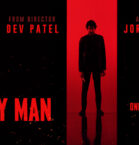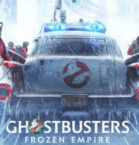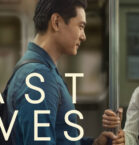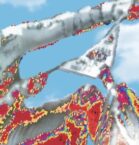Ikiru Criterion Collection Blu-ray review
“I don’t know what I’ve been doing with my life all these years.”
Kanji Watanabe (Takashi Shimura, who appeared in the majority of Akira Kurosawa’s works) has lived a life that isn’t terribly meaningful. He has spent three decades of it working as a low-level city hall bureaucrat, never taking a day off for fear his bosses will recognize they can do without him. He has never thought to search for meaning, perhaps out of fear he will not find it.

This changes when he is informed that he has been diagnosed with stomach cancer and has less than a year to live. He knows he should tell his son, but also knows his son won’t pay him any attention. How, then, will he spend his remaining days? He goes out but doesn’t seem comfortable in his surroundings, even when he captivates a bar full of patrons with a lovely song. This is not quite who he is. He wants more. He wants to feel alive just once before he dies. With that, he turns his attention to a decrepit piece of land that he wishes to see turned into a playground. (Those familiar with the artwork for the film know whether or not his efforts come to fruition.)

Akira Kurosawa’s career spanned 50 years (from 1943’s SANSHIRO SUGATA to 1993’s MADADAYO, released five years before his death) and 30 films (two of which won the Academy Award for Best Foreign Language Film, one of which won the Palme d’Or). It is IKIRU (translated as TO LIVE) that stands as his most human film, the one that truly makes the viewer consider their place in the world. It might be an impossibility to watch the film and not think, Have I achieved enough, if anything?

Yet, this is difficult to get to. IKIRU, like many of Kurosawa’s works, is long to a fault. With the nearly two-and-a-half-hour runtime, Watanabe is offered the chance to meet a number of individuals who may or may not be useful in his quest. The issue is that they serve more as roadblocks than aids and so so many of the film’s sequences feel as if they don’t really accomplish anything.
IKIRU, released in 1952 (two years after RASHOMON and two years before SEVEN SAMURAI), stays with the viewer because of its themes and wonderful performance from Shimura (who earned a BAFTA Award nomination for Best Foreign Actor; he lost to Jack Lemmon in SOME LIKE IT HOT), but is so terribly slow and dragged out at times that it at times becomes a challenge to be open to exploring any of it.

Still, films like this do not arrive on a consistent basis. It is one that wants the viewer to reflect on themselves and to take that and do something with it. Kurosawa isn’t saying we have to build a new playground, but he does suggest we should make something better for ourselves and those around us.
BLU-RAY REVIEW
Video: 1.37:1 in 1080p with MPEG-4 AVC codec. “This new digital transfer was created in 4K resolution on a Scanity film scanner from a 35 mm fine-grain master positive, the best remaining film element of IKIRU, whose original negative no longer exists. Thousands of instances of dirt, debris, scratches, splices, and warps were manually removed using MTI’s DRS, while Digital Vision’s Phoenix was used for small dirt, grain, noise management, flicker, and jitter.”
Details and contrast are strong and the filmic quality remains (although is a bit overwhelming here and there), which will delight purists.
Audio: Japanese Mono. Subtitles in English. “The original monaural soundtrack was remastered at 24-bit from a 35 mm optical soundtrack print. Clicks, thumps, hiss, hum, and crackle were manually removed using Pro Tools HD and iZotope RX4.”
Dialogue is clean and the music comes through nicely.
Commentary: Stephen Prince, author of The Warrior’s Camera: The Cinema of Akira Kurosawa, provides a wonderful commentary that will please Kurosawa and IKIRU fans, as he discusses the style, themes and production of the film.
A Message from Akira Kurosawa: For Beautiful Movies (1:21:21): This 2000 documentary offers a thorough look at work of Kurosawa, with focus on his methods and themes, as well as his approaches to storyboards, music, editing and much more.
Akira Kurosawa: It Is Wonderful to Create (41:38): This documentary looks at the making of IKIRU and includes interviews with co-screenwriter Shinobu Hashimoto and actor Takashi Shimura.
Trailer
Also included with this Criterion Collection release is an essay by critic and travel writer Pico Iyer and a reprint from critic Donald Richie’s 1965 book The Film of Akira Kurosawa.

 Mathew Plale
Mathew Plale















